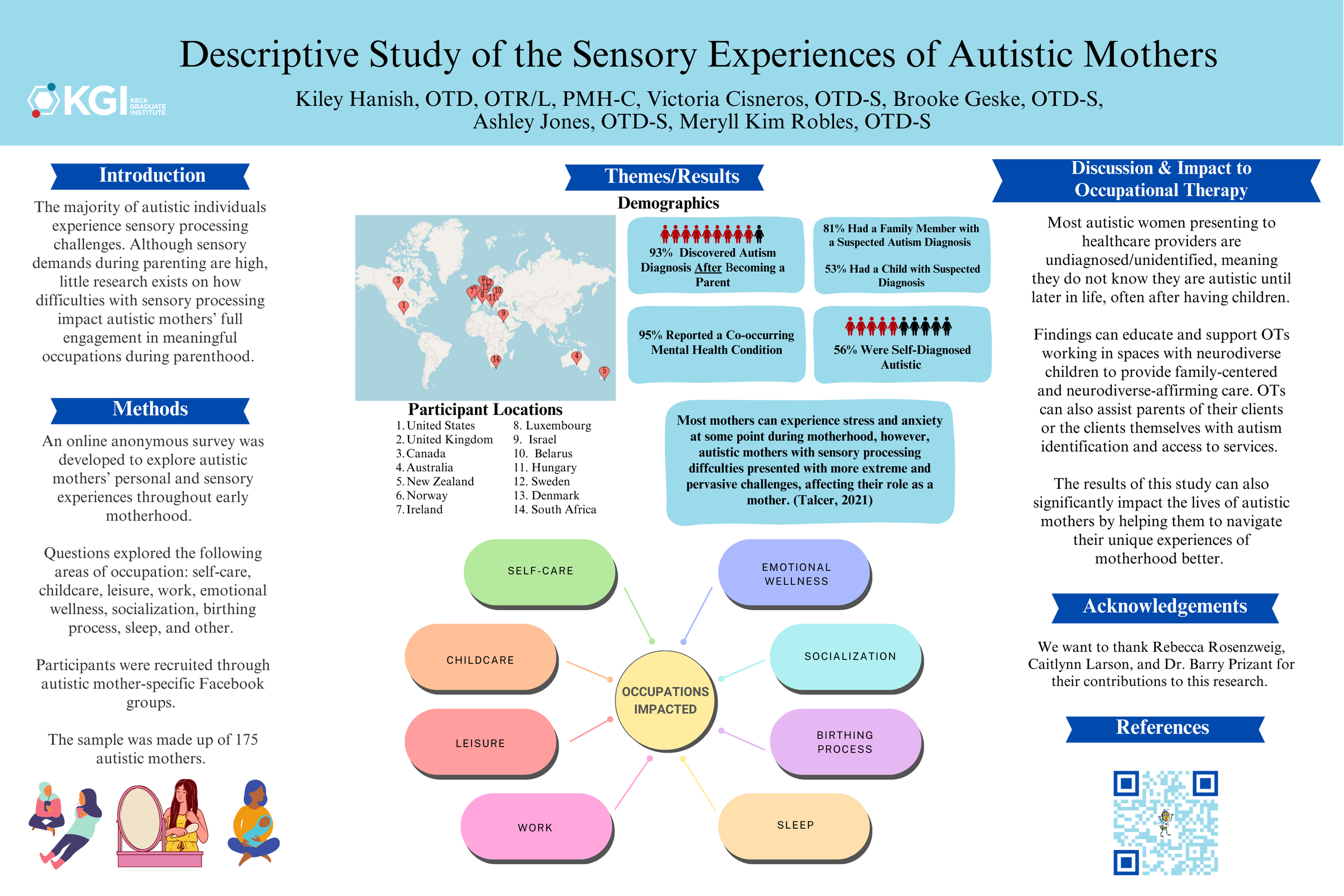Research on Autistic Mothers
This work started as a student research group through the Occupational Therapy Doctorate Program at Keck Graduate Institute in Claremont, CA. Our research groups consists of Victoria Cisneros, Brooke Geske, Ashley Jones, and Kim Robles. A special thanks to Rebecca Rosenzweig for her contributions.
Descriptive Study of the Sensory Experiences of Autistic Mothers: Abstract
Introduction: A majority of Autistic individuals experience sensory processing challenges. Although sensory demands during parenting are high, little research exists on how difficulties with sensory processing impact Autistic mothers’ full engagement in meaningful occupations during parenthood.
Objectives: The purpose of this descriptive study is to better understand the sensory experiences of Autistic mothers, specifically related to parenting and self-care occupations.
Methods: An online anonymous survey was developed to explore Autistic mothers’ personal and sensory experiences throughout early motherhood. Participants were recruited through Autistic mother-specific Facebook groups. The sample was made up of 175 Autistic mothers.
Results: The results of the study gathered an international sample of individuals who identify as Autistic mothers, almost all of whom had received a diagnosis post-parenthood. The data collected confirmed challenges for Autistic mothers in several occupational areas: disrupted self-care routines, decrease in mental well-being, disrupted sleep, misalignment between their and their child’s sensory needs, decrease in participation in leisure activities, and guilt and isolation associated with not participating in social situations related to their child.
Conclusion: Most Autistic women presenting to healthcare providers are undiagnosed/unidentified, meaning they do not know they are Autistic until later in life, often after having children. The findings of this study can educate and support occupational therapists working in school-based, pediatric, and primary care settings to provide family-centered and neurodiverse-affirming care. Occupational therapists can also utilize this information to assist parents of their clients or the clients themselves with autism identification and access to services.



